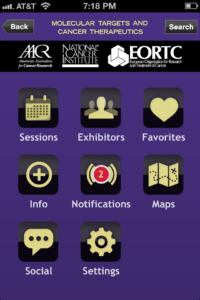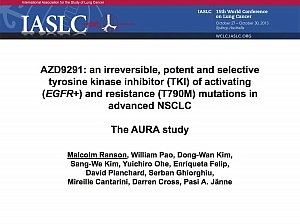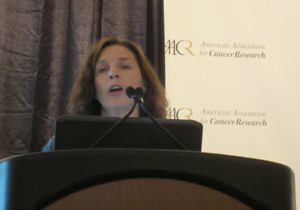The 2013 Molecular Targets and Cancer Therapeutics Conference (twitter #targets13) takes place in Boston from October 19-23 at the Hynes Convention Center. It’s a “must attend” meeting for anyone with an interest in cancer drug development and I’m really looking forward it. Boston is an exciting place for cancer research!
 Jointly organized by the American Association for Cancer Research (AACR), European Organization for Research and Treatment of Cancer (EORTC) and National Cancer Institute (NCI), it alternates each year between Europe the United States.
Jointly organized by the American Association for Cancer Research (AACR), European Organization for Research and Treatment of Cancer (EORTC) and National Cancer Institute (NCI), it alternates each year between Europe the United States.
The molecular targets meeting program and abstracts are now available online. There’s also a meeting App that’s well worth downloading if you plan to be there.
As for what’s interesting at the meeting – the three media briefings give a flavor of what to expect:
Sunday, Oct. 20, 10 a.m. “Emerging Therapeutics,” including research on investigational drugs AZD9291 and PF-06463922, which have the potential to overcome drug resistance in some lung cancers.
Monday, Oct. 21, 9 a.m. “Overcoming Resistance and Hard-to-Treat Cancers,” including research on a new antibody-drug conjugate MLN0264 for pancreatic cancer and a new nanopharmaceutical CRLX101 for cancers resistant to antiangiogenic drugs.
Tuesday, October 22, 9 a.m. “Guiding Treatment for BRAF- and BRCA-related Cancers,” including updated data on the clinical benefit of the PARP inhibitor BMN 673 and a new diagnostic platform to rapidly identify BRAF mutations.
The AACR press team led by Jeremy Moore have done a good job of identifying some of the exciting new drugs in development.
Readers of blog premium content have already read about the potential of AZD9291 in T790M resistant lung cancer from ECCO 2013 in Amsterdam. While it looks like the ECCO late-breaker did steal some of the thunder from the molecular targets meeting, there’s going to be more granularity on the compound at AACR, and hopefully some updated clinical data.
There are three AZD9291 posters at the meeting, and I’ll be covering all of these while in Boston:
Sunday, Oct 20, 2013, 12:30 PM – 3:00 PM A109: AZD9291: an irreversible, potent and selective third generation tyrosine kinase inhibitor (TKI) targeting EGFR activating (EGFRm+) and resistance (T790M) mutations in advanced lung adenocarcinoma.
Monday, Oct 21, 2013, 12:30 PM – 3:00 PM B212: Integrating the pre-clinical pharmacokinetic, pharmacodynamics, and efficacy data for AZD9291, an oral, irreversible inhibitor of EGFR activating (EGFRm+) and resistant (EGFRm+/T790M) mutations and an active metabolite to predict the human pharmacokinetics and potential efficacious dose in patients.
Monday, Oct 21, 2013, 12:30 PM – 3:00 PM B94 Discovery of and first disclosure of the clinical candidate AZD9291, a potent and selective third-generation EGFR inhibitor of both activating and T790M resistant mutations that spares the wild type form of the receptor.
Another compound that I have been following with data at Molecular Targets is ABT-199/GDC-199.
You’ll find me in the poster halls every afternoon, so if you are going to be in Boston for Molecular Targets, I look forward to seeing you there!
 Sydney – AstraZeneca AZD9291 is now ahead of Clovis Oncology CO-1686 in the race to bring a third-generation epidermal growth factor receptor (EGFR) inhibitor to market that targets the T790M resistance mutation.
Sydney – AstraZeneca AZD9291 is now ahead of Clovis Oncology CO-1686 in the race to bring a third-generation epidermal growth factor receptor (EGFR) inhibitor to market that targets the T790M resistance mutation. Boston – At the AACR-EORTC-NCI Molecular Targets and Cancer Therapeutics conference, Susan Galbraith, M.D, Ph.D. Head of the Oncology Innovative Medicines Unit at AstraZeneca discussed the development of AZD9291, a potent and selective third-generation EGFR inhibitor of both activating and wild type T790M mutations in non-small cell lung cancer (NSCLC).
Boston – At the AACR-EORTC-NCI Molecular Targets and Cancer Therapeutics conference, Susan Galbraith, M.D, Ph.D. Head of the Oncology Innovative Medicines Unit at AstraZeneca discussed the development of AZD9291, a potent and selective third-generation EGFR inhibitor of both activating and wild type T790M mutations in non-small cell lung cancer (NSCLC).